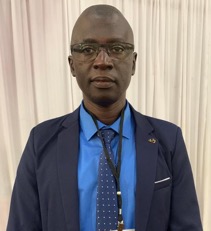
Mr Ceesay made the remarks on Monday during Gambia Teachers Union Ladies’ Society National Women’s Caucus.
The theme for the caucus was: ‘invest in education for quality service delivery: promoting gender responsive budgeting’. Mr Ceesay added that it is equally important to ensure that our investments are gender responsive and promote equity and quality.
He highlighted that investing in education is crucial to achieve sustainable socio-economic development. The educationist also said that quality education plays a vital role in poverty reduction, fostering economic growth and promoting social inclusion.
By increasing the education budget of the country, he told participants, The Gambia could ensure that all citizens have access to qualiy education irrespective of their socio-economic backgrounds.
He went on to say that increasing the education budget will lead to a more skilled and quality work force, thereby driving economic progress.
“Investing in education is not only about providing access to education but also ensuring that the education provided is of high quality,” he noted. The Gambia, compared to other West African countries and other countries internationally, he argued, is yet to realise the benchmark for education budget percentage.
Mr Ceesay further said that increasing education funding will help address the significant challenges faced by the Gambian education system.
“The Gambia currently is faced with issues such as over crowded classrooms especially in regions 1 and 2 as well as inadequate infrastructure, materials needed in science, vocational and technical education, insufficient teaching materials and shortage of well trained teachers,” he stated. He argued that training at the Gambia College is not also enough.
He thus called on government to open up opportunities and provide more scholarships for young teachers and teachers in general to go and further their education at the international level.
He noted that some of these challenges hinder the quality of education and limit access to learning opportunities.
However, he said by allocating more resources to education, The Gambia could address these issues and create a conducive learning environment for all students and improve educational outcome.
He also said that investing in education is a strategic response to the country’s demographic deviden.
“The Gambia has a young population and by prioritising education and increasing the budget and eqiuping its citizens with the necessary skills and knowledge to contribute to national development, this will empower women, reduce youth unemployment and enhance overall human capital.”
“It will also ensure a brighter future for the country as well as enable our younger population to acquire skills by the time they graduate from senior secondary schools,” he said.





